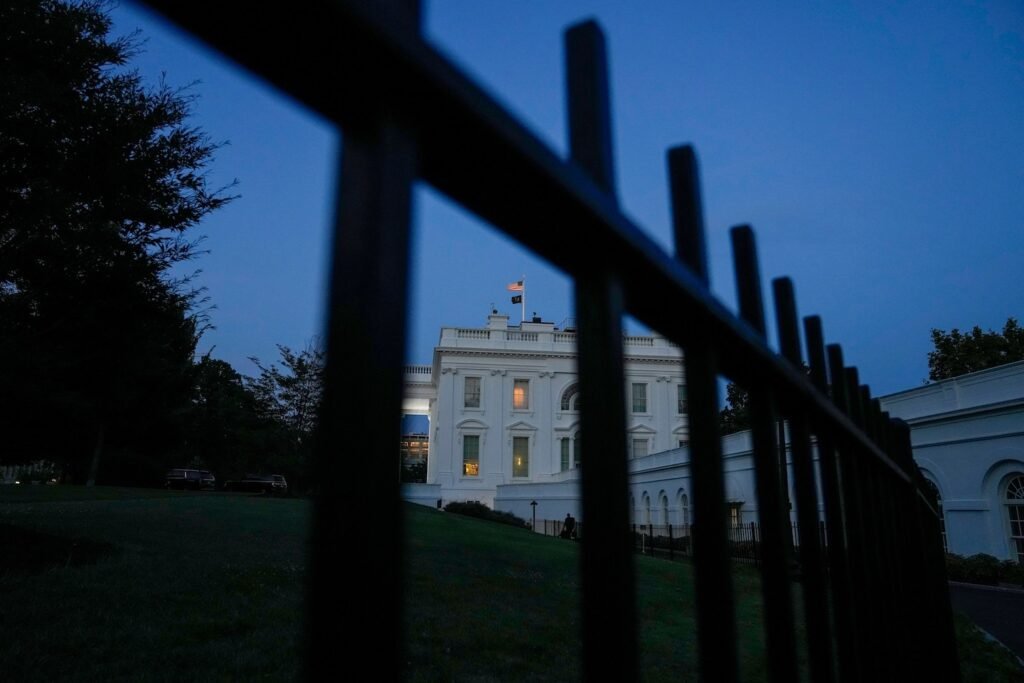If Biden withdraws from the presidential race by next week, NATO leaders will likely heartily applaud him, even as they nervously watch the polls. Many Europeans worry that a Donald Trump victory would threaten to divide the U.S. from its European allies, leaving NATO, which sees itself as the world’s most successful military alliance, adrift in rough seas.
“The summit has transformed from a planned spectacle into one of the most unsettling gatherings of modern times,” said the official, who spoke on condition of anonymity to speak candidly about the issues surrounding Biden that are vexing Washington and the world.
There has been a quiet worry among top national security officials over the past week that a foreign adversary might try to take advantage of the commander in chief’s political limbo and the administration’s distraction. Russia and North Korea are the two potential troublemakers that U.S. officials worry most about.
U.S. officials say they don’t see an imminent threat, but Russia and the United States have escalated the situation in Ukraine in recent months, with Biden crossing the red line twice this spring when he approved the shipment of ATACMS long-range missiles and later authorized the use of those weapons on Russian territory.
Russia has responded with a series of less publicized sabotage attacks, including on facilities in NATO countries distributing weapons to Ukraine, but no attacks on targets in the United States have been reported so far.
North Korea is also an uncertainty. Russian President Vladimir Putin visited Pyongyang last month and announced a “groundbreaking” partnership in which the two countries pledged to defend each other. Some analysts had warned me that North Korea might use this new influence in Russia to launch new provocations. But a Communist Party meeting in North Korea last week focused on economic issues, not new military threats.
Previous presidents have struggled with the problems of aging, but public discussion has often been muted. President Woodrow Wilson suffered a pre-stroke in late September 1919. (“It seems to me that I’m completely worn down, without even realizing it,” Wilson said.) A debilitating stroke on October 2 resulted, but officially Wilson served his final year in office largely out of sight. According to biographer August Heckscher, his wife Edith took the reins, and he wrote in his memoirs that she decided “what was important and what wasn’t.”
President Franklin D. Roosevelt’s decline was evident a year before his death on April 12, 1945, but, again, it was hidden from public view. Biographer Gene Smith wrote that by the early spring of 1944, “the president had begun to weaken. The bags under his eyes deepened, his shoulders slumped, and his hands trembled more than ever when lighting a cigarette.”
That spring, a doctor examined President Franklin Roosevelt. His heart was enlarged and his blood pressure was 186/108. He was slowly dying, while his wife Eleanor and his aides kept a tight veil of privacy. As Roosevelt grew weaker, he took a decisive action: he replaced Vice President Henry Wallace with Harry S. Truman. This was one of the wisest and most crucial decisions of his presidency, because Truman became the president who could secure the future.
Biden, like his predecessors, was surrounded by his wife and advisers on Independence Day and acknowledged he was tired and performed poorly in the debate but is continuing to campaign for a second term.
As we survey the trauma facing our nation, administration officials have asked me aloud whether we misunderstand the meaning of the “Star-Spangled Banner” we sing on this holiday and in so many public occasions, as we belt out the triumphant verse about our flag flying “in the land of the free, home of the brave” amid “the red glow of rockets, bombs exploding in the sky.”
But if you read the lyrics carefully, you’ll find that our national anthem is about resilience under pressure. The flag that onlookers saluted at “twilight’s last glow” at Fort McHenry survived a ferocious bombardment and somehow “fluttered bravely” in the “dawn light.” This is not a song of victory. It’s a song about surviving the night.

